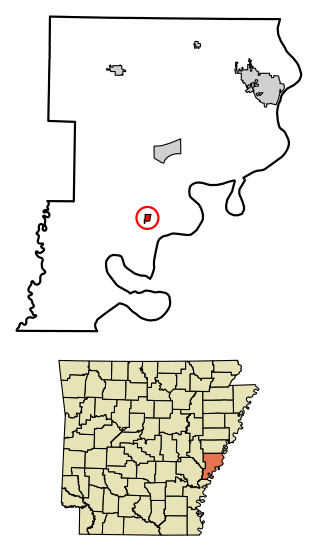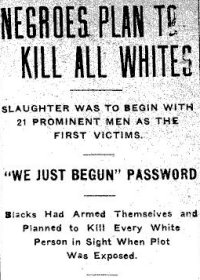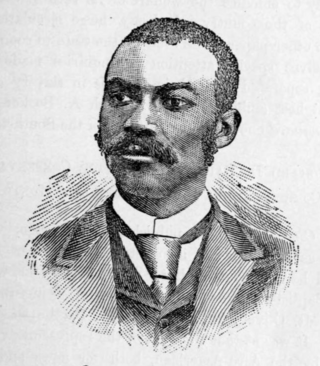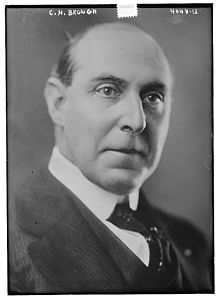Related Research Articles

Arkansas is a landlocked state in the West South Central region of the Southern United States. It borders Missouri to the north, Tennessee and Mississippi to the east, Louisiana to the south, Texas to the southwest, and Oklahoma to the west. Its name derives from the Osage language, and refers to their relatives, the Quapaw people. The state's diverse geography ranges from the mountainous regions of the Ozark and Ouachita Mountains, which make up the U.S. Interior Highlands, to the densely forested land in the south known as the Arkansas Timberlands, to the eastern lowlands along the Mississippi River and the Arkansas Delta.
In the broader context of racism in the United States, mass racial violence in the United States consists of ethnic conflicts and race riots, along with such events as:

Phillips County is a county located in the eastern part of the U.S. state of Arkansas, in what is known as the Arkansas Delta along the Mississippi River. As of the 2020 census, the population was 16,568. The county seat is Helena–West Helena.

Elaine is a small town in Phillips County, Arkansas, United States, in the Arkansas Delta region of the Mississippi River. The population was 636 at the 2010 census.

Clinton is a city in Hinds County, Mississippi, United States. Situated in the Jackson metropolitan area, it is the 10th most populous city in Mississippi. The population was 28,100 at the 2020 United States census.

Mississippi College (MC) is a private university affiliated with the Mississippi Baptist Convention and located in Clinton, Mississippi, United States. Founded in 1826, MC is the second-oldest Baptist-affiliated college or university in the United States and the oldest college or university in Mississippi.

The Elaine massacre occurred on September 30 – October 2, 1919, at Hoop Spur in the vicinity of Elaine in rural Phillips County, Arkansas where African Americans were organizing against peonage and abuses in tenant farming. As many as several hundred African Americans and five white men were killed. Estimates of deaths made in the immediate aftermath of the Elaine Massacre by eyewitnesses range from 50 to "more than a hundred". Walter Francis White, an NAACP attorney who visited Elaine shortly after the incident, stated "... twenty-five Negroes killed, although some place the Negro fatalities as high as one hundred". More recent estimates in the 21st century of the number of black people killed during this violence are higher than estimates provided by the eyewitnesses, and have ranged into the hundreds. The white mobs were aided by federal troops and local terrorist organizations. Gov. Brough led a contingent of 583 US soldiers from Camp Pike, with a 12-gun machine gun battalion.

James Philip Eagle was an American politician who served as Speaker of the Arkansas House of Representatives and as the 16th governor of Arkansas, a Baptist minister, and president of the Southern Baptist Convention. He was a Democrat.
The Progressive Farmers and Household Union of America was a union of African-American tenant farmers and sharecroppers, organized by Robert L. Hill. A meeting of this union near Elaine, Arkansas, was disrupted on the evening of September 30, 1919. The fatal shooting of a white man sparked retaliation by whites; hundreds poured into the area, attacking blacks on sight and resulting in the Elaine Race Riot, believed to be the deadliest in American history.

The Red Summer was a period in mid-1919 during which white supremacist terrorism and racial riots occurred in more than three dozen cities across the United States, and in one rural county in Arkansas. The term "Red Summer" was coined by civil rights activist and author James Weldon Johnson, who had been employed as a field secretary by the National Association for the Advancement of Colored People (NAACP) since 1916. In 1919, he organized peaceful protests against the racial violence.
Moore et al. v. Dempsey, 261 U.S. 86 (1923), was a United States Supreme Court case in which the Court ruled 6–2 that the defendants' mob-dominated trials deprived them of due process guaranteed by the Due Process Clause of the Fourteenth Amendment. It reversed the district court's decision declining the petitioners' writ of habeas corpus.
Hillman College was a women's college in Clinton, Mississippi, that existed from 1853 until 1942. It was originally named the Central Female Institute, and renamed Hillman College in 1891. It was organized by the Central Baptist Association, and remained in operation throughout the American Civil War. Mississippi College purchased and absorbed Hillman in 1942.

Wallace Townsend was an American lawyer who was from 1928 to 1961 the Republican national committeeman for the U.S. state of Arkansas. When he left his party's national committee, he was succeeded by Winthrop Rockefeller, who was elected five years thereafter in 1966 as the state's first Republican governor since the Reconstruction era.

African-American man, Jordan Jameson was lynched on November 11, 1919, in the town square of Magnolia, Columbia County, Arkansas. A large white mob seized Jameson after he allegedly shot the local sheriff. They tied him to a stake and burned him alive.

The 1916 Arkansas gubernatorial election was held on November 7, 1916.

The 1918 Arkansas gubernatorial election was held on November 5, 1918.

On December 26, 1920, an African-American man named Wade Thomas was lynched in Jonesboro, Arkansas, by a white mob. The mob seized Thomas from the Jonesboro jail after he allegedly shot local Patrolman Elmer Ragland, and murdered him.

Elias Camp Morris was an American minister, politician, and businessman. Born a slave, Morris attended seminary then preached at Centennial Baptist Church in Helena, Arkansas. He rose to prominence among black Baptists, leading the Foreign Missionary Convention. When the convention merged with two other black Baptist organizations in 1895, Morris became the president of the resulting National Baptist Convention, leading it for twenty-seven years. Morris was also active in the Arkansas Republican Party, serving as a national delegate three times, and co-founded the Arkansas Baptist College.

African Americans have played an essential role in the history of Arkansas, but their role has often been marginalized as they confronted a society and polity controlled by white supremacists. As slaves in the United States, they were considered property and were subjected to the harsh conditions of forced labor. After the Civil War and the passage of the 13th, 14th, and 15th Reconstruction Amendments to the U.S. Constitution, African Americans gained their freedom and the right to vote. However, the rise of Jim Crow laws in the 1890s and early 1900s led to a period of segregation and discrimination that lasted into the 1960s. Most were farmers, working their own property or poor sharecroppers on white-owned land, or very poor day laborers. By World War I, there was steady emigration from farms to nearby cities such as Little Rock and Memphis, as well as to St. Louis and Chicago.

Rev. Joseph Albert Booker (1859–1926), was an American newspaper editor, academic administrator, educator, minister, activist, and Black community leader. He was born into slavery and orphaned at a young age; Booker went on to serve as the president of Arkansas Baptist College and editor of the Arkansas state’s Black Baptist newspaper, TheBaptist Vanguard.
References
- ↑ "Encyclopedia of Arkansas".
- ↑ Readings in Arkansas Politics and Government edited by Janine A. Parry, Richard P. Wang, David Pryor, P.174
- ↑ Charles Hillman Brough (1876–1935) Twenty-fifth Governor (1917–1921)
- 1 2 Krugler, David (February 16, 2015). "America's Forgotten Mass Lynching: When 237 People Were Murdered In Arkansas". Daily Beast. Retrieved November 12, 2018.
- ↑ Elaine Massacre, Arkansas Encyclopedia of History and Culture; accessed July 28, 2021.
- ↑ "Elaine Massacre". Encyclopedia of Arkansas. Retrieved November 12, 2018.
- ↑ Leonhart, James Chancellor (1962). The Fabulous Octogenarian. Baltimore Maryland: Redwood House, Inc. p. 277.
Further reading
- Cortner, Richard, A Mob Intent On Death, ISBN 0-8195-5161-9
External links
- Encyclopedia of Arkansas History & Culture entry: Charles Hillman Brough
Charles Hillman Brough | |
|---|---|
 Hillman Brough in 1916 | |
| 25th Governor of Arkansas | |
| In office January 10, 1917 –January 11, 1921 |
